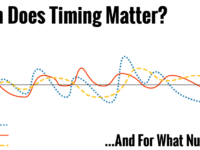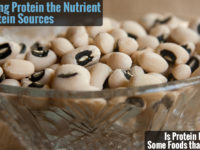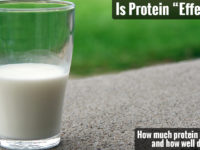Last week, a female bodybuilder from Australia (Meegan Hefford) died from what nearly every news outlet has called “too much protein” (or something along those lines). There’s a ton of stories out there, here’s just one. Buried within these stories is the true nature of Hefford’s untimely death: a urea cycle disorder, a metabolic disease that prevents the body from converting excess ammonia (formed from excess amino acids) into urea to be excreted.
Hefford didn’t know she had this metabolic disorder, and clearly she had few or no problems prior to her death. It’s tragic that she died as a result of her lack of awareness to her disease, and certainly it’s a reminder to everyone that problems can lurk below the surface (I myself had a personal revelation in this vein). It’s unfair, however, to say that a high-protein diet caused her death because that’s not the reality of her situation—her metabolic disorder was the important factor, and protein just happened to be the trigger; the exact same diet would cause no problems in 99.99% of the population.
Unfortunately, this type of shoddy journalism is extremely prevalent; the headline “Bodybuilder dies from rare genetic disorder” doesn’t exactly have punch. Journalists need to hook their audience, so it’s common to bait people in with incredible headlines and then bury the lede a few paragraphs down after the reader has invested in the story. This malfeasance also does a disservice to the public, however, as many if not most people fail to read beyond the headlines. Now, the only part of the story you remember is that a high-protein diet killed someone and the less flashy (but more accurate) true story remains largely unknown.
Outside of specific diseases—metabolic disorders and kidney disease, to name two—there is no risk to a high-protein diet. Despite the innumerably repeated refrain that protein is harmful to the kidneys or body outside of these diseases, there remains precisely zero scientific research that actually ties protein to the development of kidney disease. Some studies note slightly elevated levels of glomerular filtration rate, but there isn’t any evidence that this elevation represents any harm to a person (again, outside of kidney disease itself).
Protein is safe, by and large. Most people can consume almost any amount of protein in their diet and never suffer an adverse effect. To be sure, there is an upper limit on how much protein you need or can gain benefit from—I covered this topic just recently—and any protein you consume beyond that amount is mostly useless (aside from filling your belly), but that doesn’t make it dangerous or worth worrying over.













